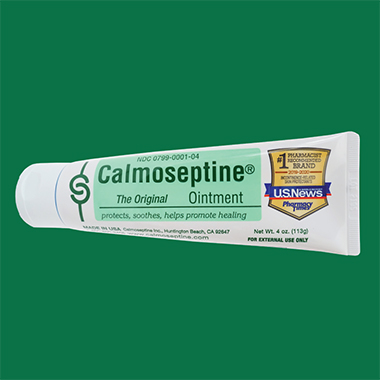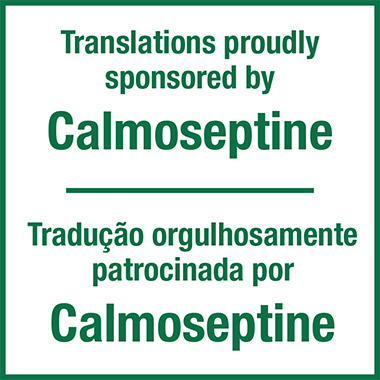Volume 40 Number 3
Nurses and nursing - endurance and initiative
Jenny Prentice
For referencing Prentice J. Nurses and nursing - endurance and initiative. WCET® Journal 2020;40(3):6
DOI https://doi.org/10.33235/wcet.40.3.6
Globally, the Year of the Nurse with its theme of Nurses caring for the World was initiated by the World Heath Organisation1. As with other global crises and world wars, there has been an unprecedented demand for nurses and nursing services. The dedication and service to nursing is once again being demonstrated as the world continues to grapple with COVID-19 over an extended period. As with world wars, nurses have lost their lives in the course of their duties in caring for patients with COVID-19; a sacrifice we should all acknowledge and continue to remember.
It is timely to reflect on the endurance and strength of the nursing profession and individual nurses, especially when under duress. Within this edition of the journal, Ocho et al describe five leadership themes of interprofessional practice, emotional intelligence, ethical practice, advocacy and self-care as requisites and ways in which nurses can be supported to provide the best care they can in ever changing circumstances.
The concepts described by Ocho et al are exemplified by Smart el in describing strategies for the assessment and prevention of facial pressure injury in healthcare workers required to wear personal protective equipment (PPE) when managing patients with COVID-19. This frontline real time research demonstrates the capability of nurses to conduct meaningful clinical research that will save many from developing facial pressure injuries when wearing PPE.
Jiang et al’s case report of the treatment of an ileal conduit fistula with negative pressure using a dual tube approach is further evidence of the initiative shown by nurses. The authors found this to be a safe and effective method to contain and heal a fistula within a uretero-ileostomy anastomosis of an ileal conduit.
Measures to prevent pressure injuries in high-risk prolonged surgical patients and the development of incontinence associated dermatitis with a prevention bundle by Abdi et al and Wei et al respectively are great examples of nurse collaboration, interprofessional practice, emotional intelligence, ethical practice and patient advocacy.
On a personal note, I am exceedingly grateful to be geographically isolated in Western Australia where COVID-19 has not impacted us as adversely as other Australian states or other countries worldwide. Our frontline nurses here in Western Australia along with all frontline nurses have my enduring respect.
Please stay safe.
With kind regards
Jenny
Editor
__________________________________
Apology
The editor wishes to unreservedly and sincerely apologise to Brenda Christiansen, Clinical Nurse Consultant and WCET® ID, the Australian Association Of Stomal Therapy Nurses (AASTN) and its members for inferring that the article entitled ‘WCET® COVID-19 Special Report Commissioned By The Australian Association of Stomal Therapy Nurses And Reprinted With Kind Permission’ that appeared with permission in the ‘Around the WCET world’ section of the WCET® Journal Volume 40 No 2 June 2020; pages 11-17, was commissioned by the AASTN or WCET®.
The Editor acknowledges that this report was singularly Brenda’s initiative as the WCET® Australian ID to reach out to fellow stomal therapy nurses to see how they and their patients with stomas were faring with COVID-19, for which she is to be congratulated.
Enfermeiros e enfermagem - perseverança e iniciativa
Jenny Prentice
DOI: https://doi.org/10.33235/wcet.40.3.6
O Ano dos Enfermeiros, com seu tema Enfermeiros cuidando do Mundo, foi iniciado pela Organização Mundial da Saúde1 em todo o mundo. Assim como em outras crises e guerras mundiais, há uma demanda sem precedentes por enfermeiros e serviços de enfermagem. A dedicação e o serviço prestados à enfermagem estão sendo mais uma vez demonstrados conforme o mundo continua a lutar contra a COVID-19 por um longo período. Assim como nas guerras mundiais, enfermeiros perderam suas vidas no decorrer de suas tarefas cuidando de pacientes com COVID-19; um sacrifício que todos devemos reconhecer e relembrar.
É oportuno refletir sobre a resistência e a força da profissão de enfermagem e dos enfermeiros individualmente, especialmente quando sob pressão. Nesta edição da revista, Ocho et al descrevem cinco temas de liderança cinco temas de liderança – prática interprofissional, inteligência emocional, prática ética, defesa e autocuidado – como requisitos e maneiras pelas quais os enfermeiros podem ser apoiados para fornecer o melhor cuidado possível em circunstâncias de mudança constante.
Os conceitos descritos por Ocho et al são exemplificados por Smart el na descrição de estratégias para a avaliação e prevenção de lesões por pressão faciais em profissionais da saúde que precisam usar equipamento de proteção individual (EPI) ao cuidar de pacientes com COVID-19. Essa pesquisa da linha de frente em tempo real demonstra a capacidade dos enfermeiros de conduzir pesquisas clínicas significativas que evitarão que muitos desenvolvam lesões por pressão faciais ao usar EPI.
O relato de caso de Jiang et al do tratamento de uma fístula de conduto ileal com pressão negativa usando uma abordagem de tubo duplo é mais uma evidência da iniciativa mostrada pelos enfermeiros. Os autores descobriram que esse é um método seguro e eficaz para conter e curar uma fístula dentro de uma anastomose de uma ureteroileostomia de um conduto ileal.
Medidas para prevenir lesões por pressão em pacientes de alto risco em cirurgias prolongadas e o desenvolvimento de dermatite associada à incontinência com um conjunto de práticas de prevenção por Abdi et al e Wei et al, respectivamente, são ótimos exemplos da colaboração entre enfermeiros, da prática interprofissional, da inteligência emocional, da prática ética e da defesa do paciente.
Em uma nota pessoal, sou extremamente grata por estar geograficamente isolada na Austrália Ocidental, onde a COVID-19 não nos afetou tão adversamente quanto outros estados da Austrália ou outros países do globo. Nossos enfermeiros da linha de frente aqui na Austrália Ocidental, assim como todos os outros enfermeiros da linha de frente, têm todo o meu respeito.
Fiquem seguros.
Saudações cordiais
Jenny
Editora
__________________________________
Errata
A editora deseja pedir desculpas incondicionais e sinceras à Brenda Christiansen, Consultora de Enfermagem Clínica e Delegada Internacional do WCET®, à Australian Association of Stomal Therapy Nurses (AASTN) e a seus membros por inferir que o artigo intitulado "Relatório especial sobre a COVID-19 pelo WCET®, encomendado pela Australian Association of Stomal Therapy Nurses [Associação Australiana de Estomaterapeutas] e reproduzido com permissão" que apareceu com permissão na seção "Por volta do mundo WCET®" da Revista do WCET® Volume 40 N° 2 de junho de 2020; páginas 11-17, foi encomendado pela AASTN ou pelo WCET®.
A editora reconhece que esse relatório foi uma iniciativa própria da Brenda como Delegada Internacional do WCET® na Austrália para entrar em contato com outros estomaterapeutas para ver como eles e seus pacientes com estomas estavam lidando com a COVID-19, pelo qual ela está de parabéns.
Author(s)
Jenny Prentice
PhD, BN, RN, STN, FAWMA
References
- World Health Organization (WHO). State of the world’s nursing 2020: investing in education, jobs and leadership. 2020 [cited 2020 May 18]. Available from: https://www.who.int/publications-detail/nursingreport-2020.



